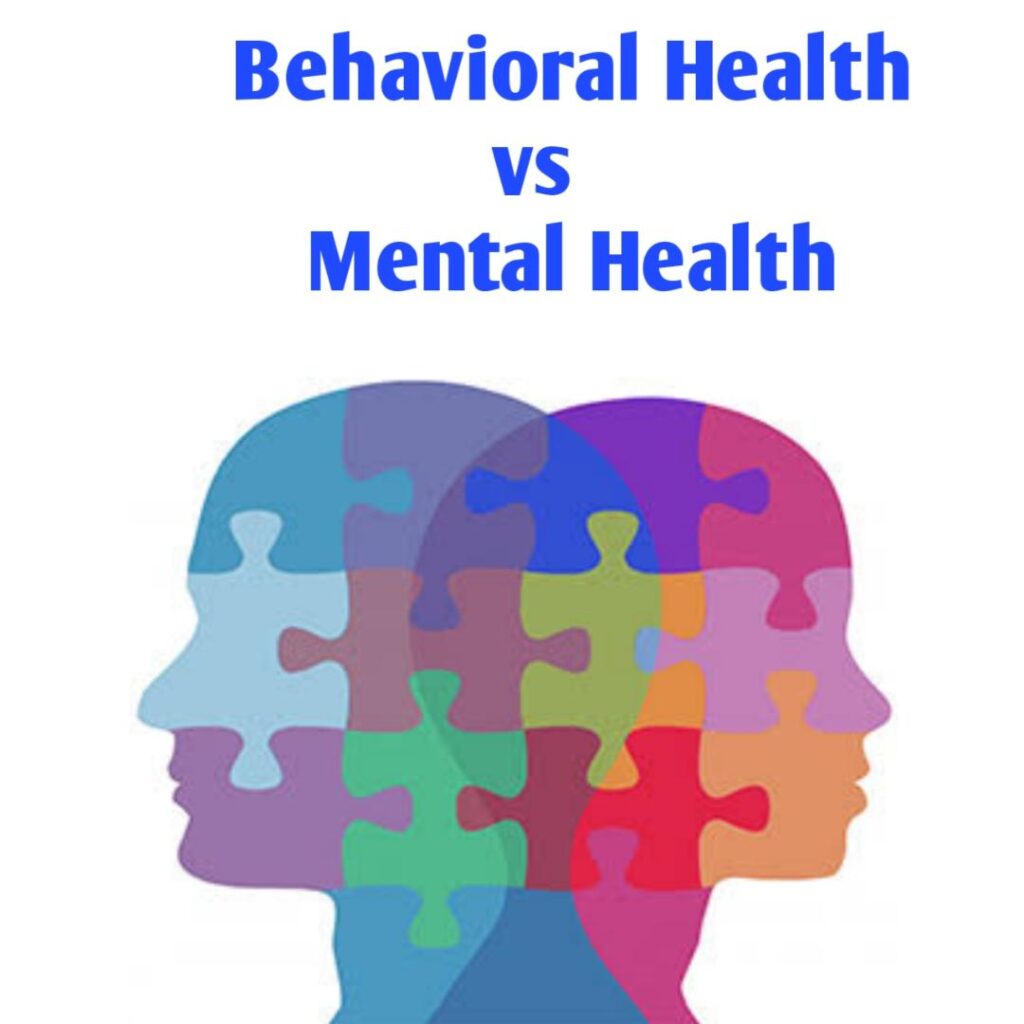According to the Maine Health Access Foundation, for every 10 people in a doctor’s office, seven are there seeking care for reasons related to behavioral health. These issues can include depression, anxiety, diabetes management, weight loss, smoking cessation, and drinking or drug use problems. This has led a growing number of healthcare providers to offer integrated behavioral health and primary care to their patients.
Mental health and behavioral health often get used interchangeably, but they’re not quite the same in either definition or treatment method. To help you clarify, we’ve outlined the difference between behavioral and mental health, which are worth being aware of.
Read on to learn more about the differences between mental and behavioral health.
Behavioral Health vs Mental Health
The terms “behavioral health” and “mental health” don’t always mean the same thing. So let’s discuss them individually.
What is Behavioral Health?
Behavioral health is defined as the connection between behaviors and the health and well-being of the body, mind, and spirit. It refers to how our daily cognitive habits affect our overall well-being, emotions, biology, and behavior. This cover a wide variety of healthcare services, including:
- Psychiatric care
- Mental healthcare
- Marriage and family counseling
- Management of chronic diseases
- Substance abuse prevention, intervention, treatment, and recovery
More simply, behavioral health is the relationship between our daily habits either good or bad, and their effect on our physical and mental health.
Behavioral health disorders include Substance Use Disorder, eating disorders, gambling addiction, and sex addiction. Each of these conditions stems from destructive behaviors. In children, behavioral health disorders may include autism, ADHD, and Asperger’s syndrome.
What is Mental Health?
Mental health is an individual’s well-being concerning their behaviors, biology, and environment. While behavioral health refers to how behaviors influence an individual’s well-being, mental health is mainly concerned with the individual’s state of being. Mental health is important from childhood through adulthood
Mental health is defined as a person’s emotional, social, and psychological wellness. It influences how we think, feel, and act, how we relate to others, or handle stress. It refers to disorders of an individual’s mood or thinking. Mental health disorders comprise anxiety, depression, and schizophrenia.
Differentiating between behavioral health and mental health
It is essential to learn that behavioral health is an umbrella term that includes mental health when differentiating between behavioral health and mental health. Behavioral health looks at how behaviors affect someone’s health — physical and mental.
This results in a notable difference between behavioral health and mental health. For example, a behavioral health professional might look at behaviors that may have contributed to a person’s obesity. This is an issue that affects someone’s physical health. Some behavioral health issues do not fall into the category of mental health.
On the other hand, mental health is included in behavioral health. So people who have mental health issues can benefit from behavioral health concepts.
The link between behavioral health’s and mental health – and how the two conditions are or are not illustrated – varies from case to case, patient to patient. Like, people suffering from diabetes or chronic cardiac conditions often develop depression, anxiety which is obvious. On the other hand, those experiencing depression may have no external physical signs of illness — making their treatment mental health-based rather behavioral.
Certainly, it’s not unusual, for mental and behavioral health’s disorders to co-occur – for both conditions to bother an individual at one time. In such circumstances, multiple behavioral health professional specialists should address the patient’s conditions, as treating one condition without treating the other – despite the growing costs – is unlikely to generate efficient, long-term results.
Numerous mental health conditions develop not because of behavioral factors but biological ones. Few factors like brain chemistry are manageable, while others such as genetic makeup are beyond our control. Cognitive-behavioral therapy and medicine can generally help reduce immediate symptoms, but so too can something as simple as learning how to ponder in healthier ways with regards to one’s mental illness.
Behavioral and Mental Health Counselling
Counseling is a therapeutic technique when it comes to behavioral health treatment, it helps individuals manage the behaviors related to mental illness or general problems with their well-being. It is focused on therapies that help individuals alter their behaviors for the better, reinforcing positive behaviors and finding ways to reduce negative behaviors. Usually, this includes diagnosing or dealing with mental health problems.
Professionals who may provide behavioral health’s counseling include psychologists, social workers, and general physicians. They specialize in providing behavioral and mental health services in a comfortable and relaxing atmosphere.
To learn more __
Call @ +1 (224) 999-6997
Or
Get a free no-sting attached billing services quote from ZEE Medical Billing for your practice.





